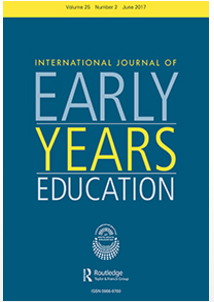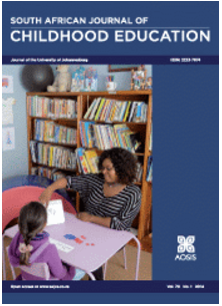Early Childhood Education Journal 43(4):249-346 Home learning environment and concept formation: a family intervention study with kindergarten children

Type
E-Journal
Category
ECCE
[ Browse Items ]
Publication Year
2015
Publisher
SpringerLink, New York, United States
URL
[ private ]
Pages
11 p.
Subject
Early childhood education, Preschool education, Learners, Teachers, Educators, Home learning environment, HLE, Concept formation, Fluid reasoning, Non-intensive intervention, Preschool children, Australia
Tags
Series Name
Abstract
Children’s cognitive development has a neural basis, yet children’s learning is facilitated by interactions with more knowledgeable others. Young children experience such interactions in the context of the home learning environment (HLE) when parents support children’s thinking and learning during everyday activities. Consequently, one way to improve children’s cognitive abilities may be to enhance the quality of the HLE. In this study, a non-intensive intervention was developed to improve both, HLE and children’s cognitive abilities. The sample consisted of 113 Australian 4-year-old children and their parents. All parents were invited to participate in a two-part intervention that included firstly attending a group meeting at which information regarding the HLE was provided, and secondly participating in an additional individual session that introduced the principles of counting and dialogic reading. HLE and children’s concept formation, as an indicator of fluid reasoning, were assessed before and after the intervention. Families and children in the intervention group showed significantly greater gains than the control group, both in the quality of HLD and the children's concept formation than members of the control group. Results indicate that non-intensive family interventions may positively impact on HLE and children’s fluid reasoning.
Number of Copies
1
| Library | Accession No | Call No | Copy No | Edition | Location | Availability |
|---|---|---|---|---|---|---|
| 1 | New York | Yes |

